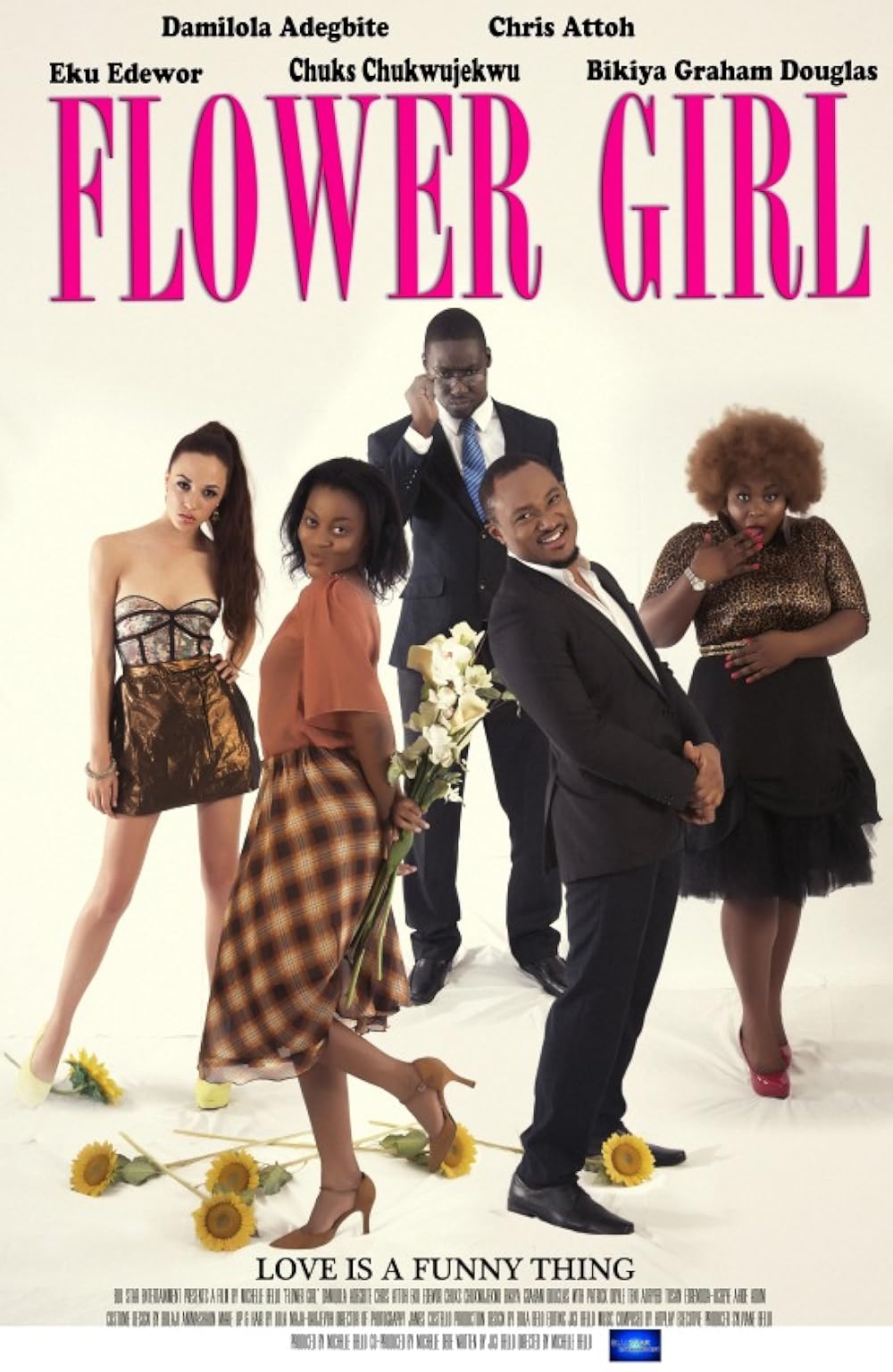
“Flower Girl” is a delightful Nigerian romantic comedy directed by Michelle Bello, revolving around the life of Zara, a talented young florist who harbors unspoken love for her long-time best friend, Tunde. The film explores the intricacies of love, friendship, and the personal struggles of being in unrequited love.
Zara, played by Damilola Adegbite, has always been there for Tunde, portrayed by Chris Attoh—supporting him through his ups and downs, while secretly harboring feelings for him. She has been in love with him for years, but her feelings have never been reciprocated in a romantic way. The twist comes when Tunde, completely unaware of Zara’s love for him, proposes to another woman. This heart-wrenching moment serves as the catalyst for the emotional journey that follows, as Zara is forced to come to terms with her heartache.
The plot thickens as Zara decides to take control of her destiny and win Tunde’s heart—by any means necessary. Her heartache, mixed with a hint of desperation, leads to a series of bold, and at times comedic, attempts to disrupt Tunde’s engagement to his fiancée, Kehinde Bankole’s character, a poised and elegant woman who unwittingly becomes the object of Zara’s rivalry. Zara’s scheme becomes both hilarious and emotionally charged, filled with misunderstandings, personal revelations, and moments of vulnerability.
The story isn’t just about Zara’s unrequited love; it’s also about family dynamics. Zara’s relationship with her mother, played by Bimbo Akintola, provides an emotional core for the film. Their relationship highlights the generational differences in how love and relationships are perceived, and it’s through these interactions that Zara begins to gain the strength to face her own emotions head-on. Her mother’s wisdom and advice provide the grounding that Zara needs to make sense of her situation and ultimately determine what’s truly best for her.
As the film unfolds, the audience is taken on an emotional rollercoaster filled with comedic moments, heartfelt exchanges, and awkward but genuine interactions. Tunde, too, is caught between his loyalty to his fiancée and his longstanding friendship with Zara, which makes for an interesting dynamic as he begins to understand the depth of her feelings. Patrick Doyle plays Tunde’s father, adding depth to the story by representing the more traditional views of love, while Oreka Godis portrays Tseju, a character whose interactions with Zara bring humor and lightness to the story.
The film stands out not only for its relatable plotline, which touches on the complexities of love, but also for its incredible performances. Damilola Adegbite brings an emotional authenticity to her portrayal of Zara, capturing the fragility of a woman in love, while Chris Attoh balances his role as Tunde with charm, wit, and sensitivity. The film successfully combines elements of romance and comedy, providing a perfect blend of emotional depth and light-hearted moments.
“Flower Girl” explores the themes of friendship, love, and self-discovery. As Zara embarks on her journey of winning Tunde’s love, she also learns valuable lessons about her own worth, resilience, and the importance of setting boundaries in relationships. The storyline emphasizes how important it is to be honest with oneself, to pursue love with integrity, and to let go when necessary. Throughout her personal journey, Zara learns that sometimes, love is about letting go, even when it’s the hardest thing to do.
The film received critical acclaim for its engaging and relatable storyline, the performances of its lead actors, and its fresh approach to exploring love and friendship in modern-day Nigeria. Damilola Adegbite’s portrayal of Zara earned her a nomination for Best Actress in a Leading Role at the 2015 Africa Magic Viewers’ Choice Awards, further solidifying the film’s success and appeal.
“Flower Girl” is a touching and funny exploration of love, loss, and self-realization. It resonates with audiences who have experienced the complexities of unrequited love, friendship, and the realities of modern relationships. The film serves as both an entertaining romantic comedy and an insightful exploration of the emotional depths people go through when navigating relationships, making it a memorable and timeless piece in Nigerian cinema.



